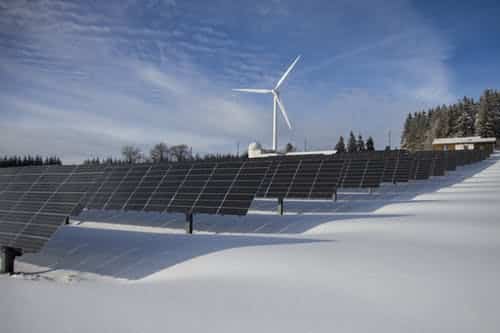New York Regulator Undertakes Review of $10 Billion Clean Energy Programs

The New York Public Service Commission on Sept. 15 commenced its review of a number of its innovative clean energy programs, incorporating utilities’ endeavour’s under New Efficiency: New York, or NENY and the New York State Energy Research and Development Authority’s Clean Energy Fund, or CEF. Collectively, these initiatives represent approximately $10 billion in customer funding for future, far-reaching energy efficiency and developing electrification policies intended to promote significant market facilitating expansion of personnel, supply chain, and consumer demand.
The review will assess performance to date and provide guidance for future clean energy efforts in accordance with the 2019 Climate Leadership and Community Protection Act. Specifically, the commission indicated that the provisional review would evaluate all significant aspects of the portfolios’ design and administration, useful innovation, and governance oversight, as well as alterations to targets and budgets.
The commission in the past pledged to carry out a conventional interim evaluation of NENY to begin in 2022. However, given the near association between NENY and the energy efficiency and building electrification facets of the CEF, the commission chose to evaluate the NENY and appropriate CEF programs simultaneously. The commission pointed out to the substantial increase in efficiency and electrification actions and emphasised that the development of the programs is mandatory to meet the NENY and related CEF objectives and, support New York’s clean energy goals under the climate law, including its obligation to supporting underprivileged communities, would necessitate the commission to carefully inspect the utilities’ and NYSERDA’s development and realign and possibly lengthen the goals and budgets beyond 2025.
The initial phase of the commissions review will delve into energy efficiency and building electrification plans, including initiatives directed at low to moderate income, or LMI, customers and evaluate the states development toward the energy efficiency initiative and CEF energy efficiency and building electrification objectives and accordance with the climate law and other state led clean energy policy directives. Moreover, the commission has directed its staff to file a public report that encapsulates the energy efficiency and building electrification execution to date and puts forward a number of questions to seek input. The staff report and the public input will be considered as a vital part of the initial review.
The commission’s review will also focus on LMI-focused programs to verify support with the directives and objectives of the 2019 climate law for actions in disadvantaged communities. Furthermore, the reviews will also take into consideration the accessibility of any federal funding for any of the clean energy programs. Moreover, it will delve into whether any adjustment is required with regards to increasing the value of federal funds for the state.
EnerKnol Pulses like this one are powered by the EnerKnol Platform—the first comprehensive database for real-time energy policy tracking. Sign up for a free trial below for access to key regulatory data and deep industry insights across the energy spectrum.
ACCESS FREE TRIAL